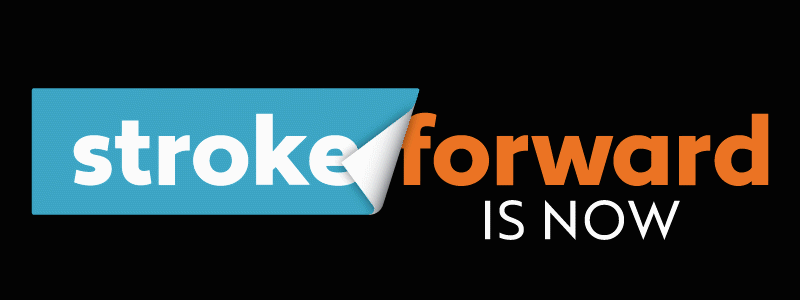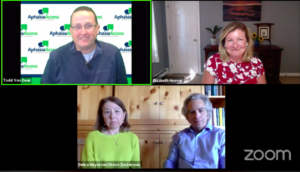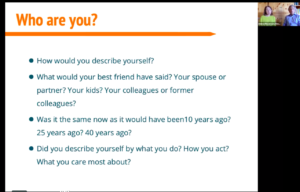
20 Jul Time for Change
As we all continue to grapple with our “new normal”, one thing we must accept is that change is even more frequent and inevitable than ever before. In that spirit, we want to share important news…
We’ve changed our organization’s name to Stroke Onward
Why? — you might ask. Several months ago a book was published with the name “Stroke Forward”. Rather than co-exist and cause confusion in the years ahead as we continue to grow our organization and impact, we decided to “re-brand” from Stroke Forward to Stroke Onward. It’s a seemingly small change, but we’ve come to appreciate that our new name embodies an important distinction. As a friend who gave us feedback observed: there are so many ways to move onward– forward sounds more linear – and the process of rebuilding after stroke is anything but linear. So Stroke Onward it is!
Aphasia Access 24-hour Virtual Teach-In
With in person gatherings essentially impossible, the 24-hour Virtual Teach-In that leaders of Aphasia Access began designing two years ago was remarkably well-suited for our changing times. Board President Liz Hoover, Executive Director Todd Von Deak (both on Zoom with us) and their team led a fantastic event.

We were thrilled to participate on June 24th, alongside more than 70 others who shared incredible stories of impact and cutting edge work to support those who live with aphasia. We shared a bit of our story, and some lessons about how understanding and rebuilding identity can be a tool to help survivors more frequently “look forward, not back”. We also shared some early data on work we’re doing at Boston University and MGH-IHP to understand how our message might be built into the degree granting programs for medical, therapy and other practitioners. We hope that doing so will enhance the perspective and resources for the next generation of professional caregivers.

Approximately 300 participants logged in at some point during the Teach-In marathon — most were speech language pathologists who lead and support aphasia programs worldwide. Presentation content ranged from research studies, virtual aphasia programs, mentored student research, program ideas to support community participation, and more. Attendees and presenters tuned in from the United States, Canada, the United Kingdom, Ireland, Denmark, Australia, New Zealand and India. The Aphasia Access community is truly incredible — highly expert, passionate, and exceptionally welcoming of new people and new ideas — and we’re thrilled to have been able to join in.
Social Media Themes
June was Aphasia Awareness Month and we used social media to do our part in helping more people understand this incredibly frustrating disability that affects about ⅓ of all stroke survivors and more than 2 million people in the United States alone. Learn more about Aphasia at Aphasia Access, The National Aphasia Association or The American Stroke Association.
As the calendar shifts to July, in honor of July 4th Independence Day in the US, we’re focusing on broader themes of independence. In Identity Theft: Rediscovering Ourselves After Stroke we wrote quite a bit about the emotional trauma of losing independence following a stroke and the struggle to recover capabilities and regain it. We also wrote about how reality, identity and independence can change for each of us, as our family experienced stroke together (Chapter 9 – Stroke is a Family Illness.) And maybe most importantly, we shared how our family’s very notion of independence changed in important ways as we learned that independence doesn’t have to mean “going it alone”. Co-existence and co-dependence can actually be a powerful aspect of independence. We still tear up every time we think about our daughter Sarah’s talk delivered to her high school community two years after the stroke (that story begins Chapter 9) — she, on her own, figured out that true strength doesn’t mean “gutting it out alone”, but rather the ability to be vulnerable, and ask for and accept help from others. As she stated at the end of her talk, “As every athlete knows — no matter how much you can bench press, you always need a spotter.”
New Social Media
As we Stroke Onward, we will increasingly share our message through social media. We have launched ourselves as @StrokeOnward on Facebook, Instagram, Twitter, and LinkedIn. Future activity on these handles will focus on sharing information, resources, ideas and activities to complement Deb’s social media and those associated with her book, Identity Theft: Rediscovering Ourselves After Stroke which you can find here. Given the different focus of our two social media efforts, we hope you will consider following both.
With appreciation for your support, collaboration and interest in our work, we offer best wishes for safety and health during these changing and challenging times.
Debra and Steve

No Comments